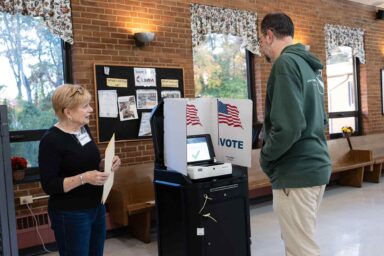How Knowing Your Rights Can Stop Disenfranchisement
Two Georgia college students share their experience of voting for the first time — and their potential disenfranchisement had they not known better.
While there are statistics on how many absentee ballots are rejected, how many voters have been purged from the rolls, or how many registrations have not been processed in a state like Georgia, there is another important number that is not quantifiable: how many eligible voters get turned away from the polls for false reasons.
When WhoWhatWhy video editor Kate Walker set out to interview Spelman College students Niya Ray and Ciara Smith, the goal was to simply tell the story of two young women who were about to vote for the first time.
But things turned out differently because, had they not known their rights, they would have been disenfranchised. When Ray and Smith wanted to cast their ballot, they were told that their out-of-state ID did not meet the requirements of the identification required to vote.
That, however, is false. An ID used to vote is proof of identity, not proof of residency (you establish the latter when you register). The experience of the two students raises the question of how often eligible voters are deterred by poorly informed poll workers — for ID-based reasons or for anything else.



